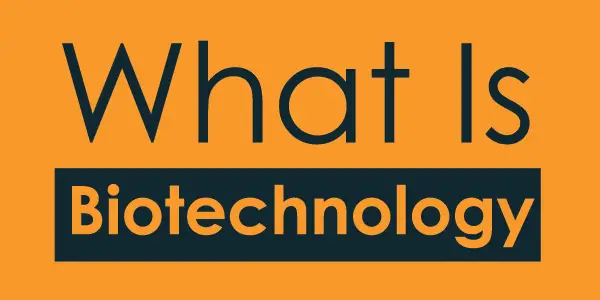
What is Biotechnology?
In this section, you will learn about what is biotechnology. It is a scientific technology that uses biological cells, biological procedures or its metabolites to manufacture products to improve the quality of human life. It is concerned with the techniques of using biology for practical purposes.
Biotechnology is a scientific technology that uses biological cells, biological procedures or its metabolites to manufacture products to improve the quality of human life. It uses animals, plants, bacteria or other living things to develop medicines, food or new substances.
What is the Future and Applications of Biotechnology?
I think you would like to know about the future of biotechnology, the expectations regarding biotechnology are so high. It has proven to be a set of high-capacity technologies that are increasingly being applied in many aspects of modern society.
A significant part of that progress is likely to be the result of advances in personalized medicine.
Due to developments such as genetics, scientists can map and change the source code of organisms. Due to the increase in big data, the development of powerful computers, and better algorithms, researchers can analyze the origins and development of biology increasingly accurately.
Applications
There are vast applications of biotechnology. but some of them are listed below. Biotechnology is as applicable as its vast.
In Medicine
Currently, more than 250 biotechnological medicines and vaccines are available to patients. Many of these focus on previously untreatable diseases. This is also called red biotechnology.
- Production of insulin, drugs and vaccines.
- Stem cell research for therapeutic purposes.
- DNA microarrays and protein chips are used to find disease-causing genes.
- Manipulation of animals, such as pigs, to use their organs in human transplants, which is known as xenotransplantation.
- Gene therapy introduces genetically modified DNA into the patient’s cell.
- Laboratory production of antibodies for patients with deficiencies in the immune system.
Agriculture:
Millions of farmers around the world use biotechnology to increase crop yields in the agriculture sectors, prevent damage from pests and diseases, or protect crops from extreme conditions such as drought.
- Production of inputs: fertilizers, seeds, pesticides.
- Ornamental flowers, etc., also rely on tissue culture technology to reproduce high-quality flowers to increase the value of flowers.
- Food processing: transgenic foods.
Environment
When the environment is damaged, biotechnology can be used to protect the environment from the second damage.
- Bioremediation
- Bioconversion
- Biodegradable plastic production from microalgae.
- Biofuel production from living organisms or plant residues.
Industry
In industry, biotechnology is used to make production processes run faster and more sustainably. Enzymes, bacteria and fungi are converted into mini-factories. They help in the bleaching of a wide range of applications: bleaching paper, the production of washing powders that work at a low temperature, tanning.